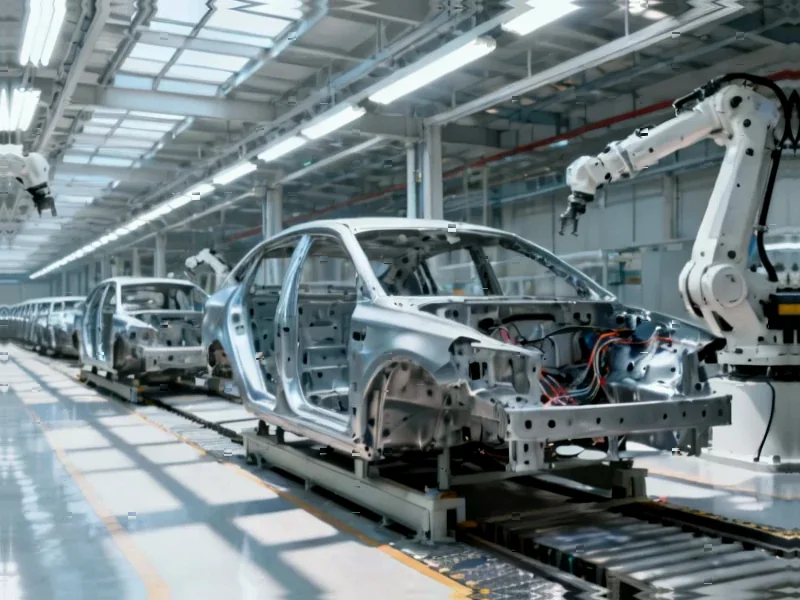According to CRN, battery and backup giant Eaton announced plans to acquire Boyd Thermal for $9.5 billion in a deal expected to close in the second quarter of 2026. The acquisition would give Eaton access to Boyd’s liquid cooling technology for data centers, with Boyd Thermal forecasting $1.7 billion in sales for 2026 and the purchase price representing 22.5 times adjusted EBITDA. Eaton CEO Paulo Ruiz emphasized that combining Boyd’s “chip-to-ambient cooling” with Eaton’s power management capabilities will help customers manage increasing power demands, particularly in data centers. Following the announcement, Eaton’s stock price rose 1.11% to $385.88, while Boyd Corp., owned by Goldman Sachs Asset Management, will continue operating its engineered materials business separately. This move follows rival Schneider Electric’s acquisition of Motivair last year, indicating a broader industry trend.
The AI Power Revolution Demands New Cooling Solutions
This acquisition isn’t just about expanding product portfolios—it’s a strategic response to the fundamental physics challenge facing AI infrastructure. As AI chips from NVIDIA and others push power densities beyond 1,000 watts per square foot, traditional air cooling becomes physically inadequate. Liquid cooling isn’t merely an efficiency improvement; it’s becoming a requirement for next-generation AI workloads. Eaton recognizes that power management and thermal management are converging into a single critical infrastructure challenge. The company’s traditional strength in uninterruptible power systems and power distribution now needs to extend directly to the server rack level, where thermal constraints threaten to bottleneck AI performance.
Infrastructure Giants Are Consolidating the AI Stack
We’re witnessing the early stages of a major consolidation wave in critical infrastructure. Just as Schneider Electric moved on Motivair, Eaton’s massive bet signals that established power management companies see thermal management as their natural adjacent market. The strategic logic is compelling: customers want single-vendor solutions for their entire AI infrastructure stack from power input to heat rejection. This vertical integration reduces complexity for hyperscalers and enterprises deploying AI at scale. The 22.5x EBITDA multiple, while rich, reflects the strategic premium for controlling both sides of the power-thermal equation. Expect more infrastructure players to pursue similar acquisitions as the AI buildout accelerates.
What This Means for Data Center Operators and Competitors
For data center operators, this consolidation creates both opportunities and challenges. The promise of integrated power and cooling solutions could simplify procurement and improve system reliability. However, it also concentrates more bargaining power with fewer suppliers. Competitors like Vertiv and STULZ will need to respond with their own strategic moves, whether through partnerships, acquisitions, or accelerated R&D. The 2026 closing timeline gives the market time to adjust, but the direction is clear: the era of separate power and cooling vendors is ending. Companies that can’t offer comprehensive solutions risk being marginalized in the AI infrastructure race.
The 2026 Timeline Hides Urgent Market Pressures
While the deal won’t close until 2026, the market pressures driving it are immediate. AI chip manufacturers are already shipping products that require liquid cooling, and major cloud providers are deploying these systems today. The two-year regulatory approval and integration period creates a window where Eaton and Boyd will operate as separate entities while competitors capitalize on the uncertainty. However, the long timeline also suggests both companies anticipate significant regulatory scrutiny given the market concentration implications. The success of this acquisition will depend on how effectively Eaton can integrate Boyd’s specialized engineering culture while maintaining the innovation pace needed to keep up with rapidly evolving AI thermal requirements.





Your article helped me a lot, is there any more related content? Thanks!